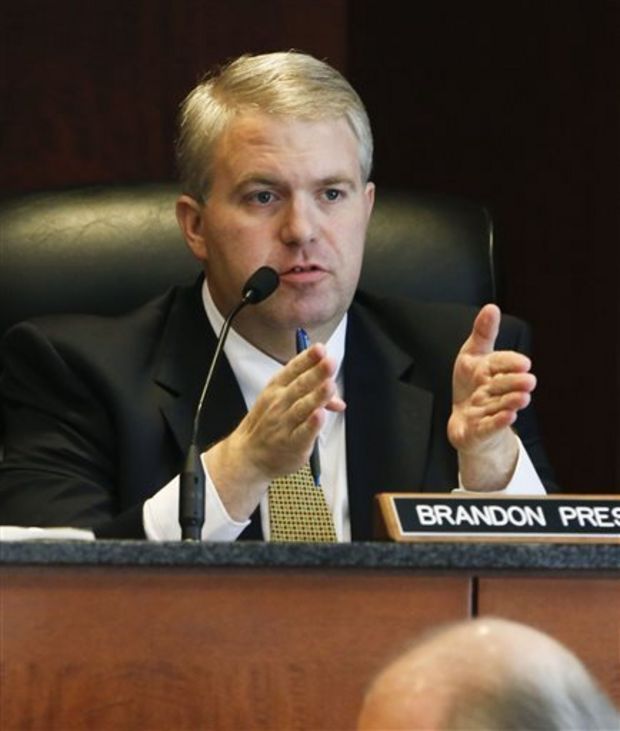

JACKSON, Miss. (AP) — Mississippi has another utility that would like, at least someday, to collect some money for a power plant it hasn’t built yet.
Mississippi Power Co. has already raised rates for customers by 18 percent to collect their share of the $5.5 billion Kemper County plant. The unit of Atlanta-based Southern Co. would also like to raise rates by what it estimates would be an additional 4 percent to repay $1 billion in bonds to cover part of the overruns that Mississippi Power has incurred.
But Entergy Corp. has a request before the Mississippi Public Service Commission to approve $56.8 million it spent planning the possibility of an additional nuclear reactor at the Grand Gulf Nuclear Station near Port Gibson. The Mississippi unit of New Orleans-based Entergy says it’s deferring collections for now. If Entergy goes ahead with building the reactor, it wants the right to recoup the money in the future from its 440,000 customers in 45 counties on the western side of the state.
“We’re not seeking to recover any money right now,” said Entergy spokeswoman Mara Hartmann. “We want to keep our options open.”
The request has been parked since late 2011 and is going nowhere fast. The state Public Service Commission was supposed to conduct a hearing by October 2012 to determine whether Entergy had spent the money prudently. But that hearing never happened. Northern District Commissioner Brandon Presley, a Democrat, said the separate Public Utilities Staff, which advises the commission, is awaiting a study of the prudence of the spending.
Thomas Blanton, a Hattiesburg oilman and unsuccessful Public Service Commission candidate, is challenging the Baseload Act, a 2008 law allowing utilities to raise rates to pay for power plants they’re building, instead of waiting until they start generating electricity. Blanton, who has aimed his lawsuit at Kemper, says collecting from customers before a power plant is turned on is unconstitutional for a number of reasons.
Entergy and Mississippi Power both backed the Baseload Act, which was also supported by then-Gov. Haley Barbour.
While Mississippi Power steamed ahead on Kemper, Entergy decided to shelve its plans at Grand Gulf. Officials said that’s in part because they encountered difficulty in getting a loan guarantee from the U.S. Department of Energy and in part because they couldn’t negotiate a contract with reactor group GE-Hitachi to protect Entergy from cost overruns.
Presley said Entergy’s spending was not done under the state’s Baseload Act. But that law does allow for spending before it was passed to be collected by utilities. Hartmann said that if the act is thrown out it could become harder, though not impossible, for Entergy to collect its money.
Entergy’s request illustrates part of Blanton’s challenge to the law.
“One of the problems we have with the act is that the law allows for recovery whether or not a plant is ever built or placed in commercial operation,” said Blanton’s lawyer, Michael Adelman. “It’s inconsistent with earlier cases where the Supreme Court has never really upheld the granting of rates where the customer gets nothing.”
The state Supreme Court is still weighing Blanton’s challenge, and has ordered the parties to answer to a series of additional questions about the act’s constitutionality by late May.
Because Entergy never started construction, the amount of money it spent is much smaller than what Mississippi Power has spent on Kemper, only about $130 per customer. It also pales with Entergy’s original attempt to build a second reactor in Claiborne County. The company absorbed $900 million to settle litigation over Grand Gulf in 1989, giving up on the second unit.



